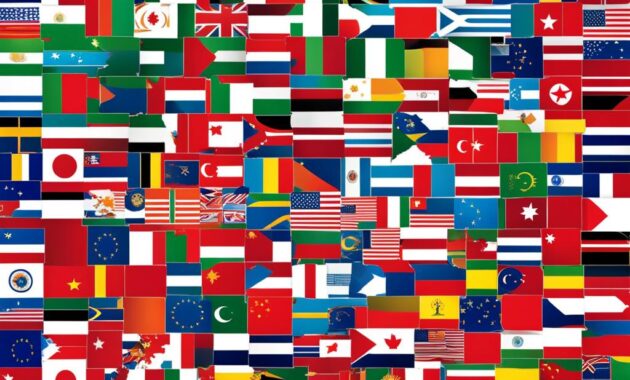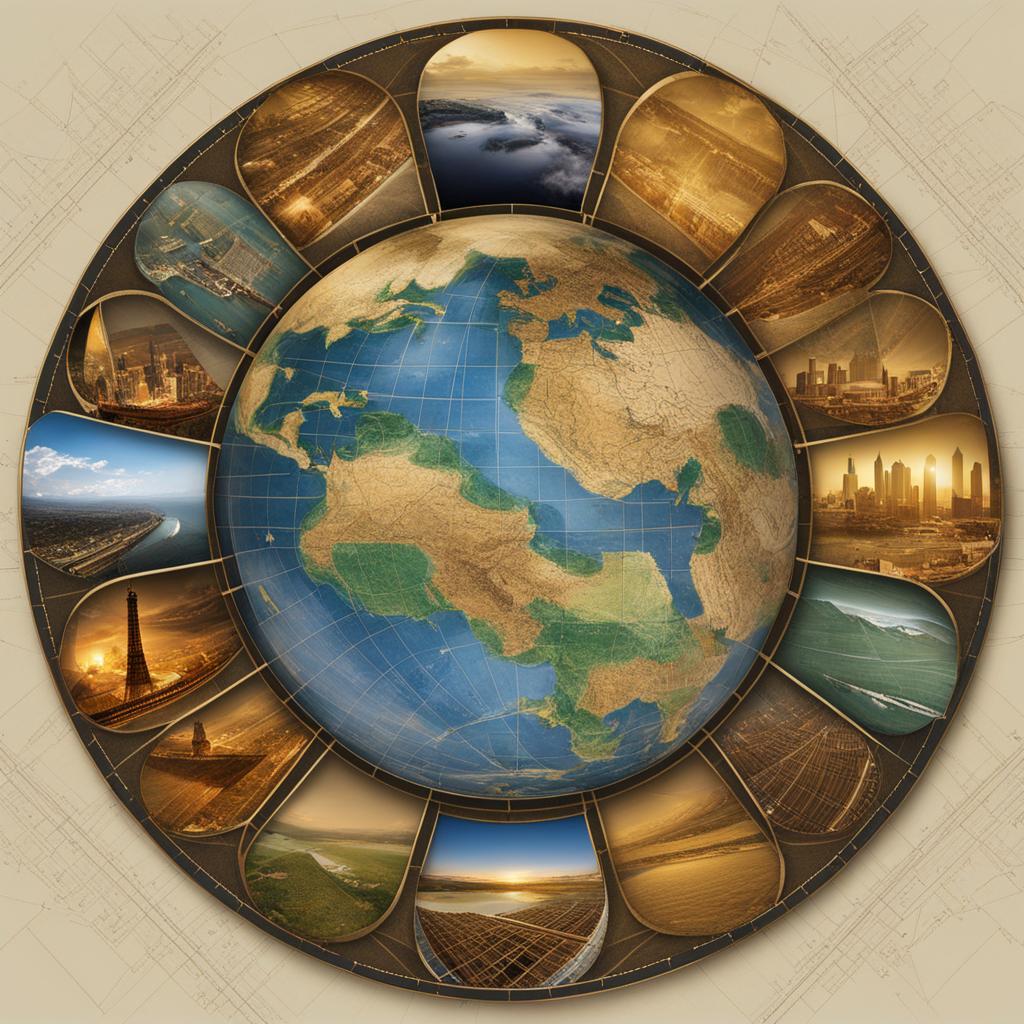Welcome, dear readers, to our exploration of the vital role of economic diplomacy in shaping global economic governance. In this section, we will dive deep into the challenges and opportunities that lie ahead and highlight the need for strategic decision-making to ensure a prosperous future for all.
As we navigate increasingly interconnected economies, countries worldwide must engage in effective economic diplomacy to foster cooperation and navigate disputes. Effective global economic governance is essential to ensure stability and growth, both domestically and internationally.
Together, we will explore the significance of economic diplomacy and discuss how it plays a crucial role in shaping global economic governance. By the end of this section, we hope to provide you with a comprehensive understanding of the importance of economic diplomacy and the need for strategic decision-making to chart the course ahead.
Understanding Economic Diplomacy
In this section, we will provide a comprehensive understanding of economic diplomacy and its significance in international relations. Economic diplomacy is the use of economic tools, such as trade, investment, and aid, to achieve diplomatic objectives. It plays a crucial role in shaping global economic governance, promoting cooperation, resolving disputes, and creating opportunities for economic growth.
Economic diplomacy is a vital component of foreign policy, and nations use it to further their interests, influence other countries, and project economic power. It involves a complex web of negotiations, agreements, and policies that impact trade, investment, and economic development.
The Significance of Economic Diplomacy
Economic diplomacy is significant for several reasons:
- It promotes business interests and drives economic growth.
- It enhances global cooperation and fosters peaceful relations between countries.
- It helps to resolve disputes and conflicts and create opportunities for mutual benefit.
- It enables nations to achieve diplomatic objectives, such as promoting democracy and human rights or countering terrorism and international crime.
Economic diplomacy involves a range of strategies and tools, including trade policies, investment agreements, sanctions, and development aid. The effectiveness of economic diplomacy depends on a country’s economic power, negotiating skills, and ability to build relationships.
The Role of Economic Diplomacy in International Relations
The role of economic diplomacy in international relations is essential. Economic diplomacy influences the international environment, shaping the rules, policies, and institutions that govern global economic integration. It helps to create a level playing field for businesses, facilitating trade and investment. It also promotes transparency, accountability, and good governance.
“Economic diplomacy is the use of economic tools, such as trade, investment, and aid, to achieve diplomatic objectives.”
The success of economic diplomacy relies on international cooperation and coordination. Nations must work together to address global economic challenges, such as climate change, economic inequality, and the digital divide. International organizations, such as the World Bank and the International Monetary Fund, have a crucial role to play in promoting economic diplomacy and global economic governance.

Navigating Global Economic Governance
In today’s interconnected world, global economic governance plays a critical role in shaping the economies of nations worldwide. Policies and regulations set by international organizations like the World Trade Organization (WTO) and the International Monetary Fund (IMF) impact the economic decisions of nations globally.
However, navigating the complex landscape of global economic governance presents challenges. International laws, treaties, and agreements can be intricate and sometimes contradictory, making it challenging for nations to balance their economic interests with their international obligations.
Additionally, economic policies and regulations established by international organizations can have varying impacts on different regions, exacerbating economic disparities. For example, WTO policies on trade liberalization may benefit developed countries while negatively impacting developing nations.
Despite these challenges, navigating global economic governance also presents opportunities. Closer economic ties between nations can foster cooperation, promote trade and investment, and drive economic growth.
An example of successful global economic governance is the Paris Agreement, an international treaty on climate change that has been ratified by 189 countries. The agreement aims to limit global temperature rise to below 2 degrees Celsius and promotes the transition to low-carbon economies. By working together, nations can address global challenges like climate change while achieving sustainable economic growth.
Moreover, effective global economic governance can aid in crisis management and enhance economic stability. During the 2008 financial crisis, international coordination between economic policymakers and institutions proved crucial in preventing a global economic collapse.
In conclusion, navigating global economic governance requires strategic decision-making and cooperation between nations. While it presents challenges, it also offers opportunities for economic growth, stability, and sustainable development. As we move forward, we must strive for inclusive economic policies that benefit all nations and promote a prosperous future for our interconnected world.
The Implications and Benefits of Economic Diplomacy
As we have explored in the previous sections, economic diplomacy plays a crucial role in shaping global economic governance. Let us now delve into the implications and benefits of economic diplomacy on a global scale.
“Economic diplomacy is a crucial tool in fostering cooperation, resolving disputes, and creating opportunities for mutually beneficial trade and investment.”
By engaging in economic diplomacy, countries can establish partnerships and promote sustainable economic growth. Economic diplomacy can lead to the creation of new markets and the expansion of existing ones, which ultimately results in increased foreign investment, job creation, and economic development.
Furthermore, diplomatic negotiations can help resolve trade disputes and prevent them from escalating into full-blown trade wars. Economic diplomacy can serve as a mechanism for maintaining a level playing field in global commerce, protecting national interests, and creating opportunities for inclusive growth.
Economic Diplomacy and Sustainable Development
Economic diplomacy also has significant implications for sustainable development. The United Nations’ Sustainable Development Goals (SDGs) aim to end poverty, protect the planet, and ensure prosperity for all.
Through partnerships, economic diplomacy can help achieve these goals by addressing global challenges such as climate change, poverty, and inequality. As countries work together to achieve the SDGs, economic diplomacy can foster cooperation and enhance the collective ability to drive economic growth that is environmentally sustainable and socially inclusive.
Economic Diplomacy and Global Economic Governance
Economic diplomacy also plays a critical role in global economic governance. By engaging in economic diplomacy and promoting cooperation, countries can ensure that global economic governance is effective, transparent, and inclusive.
In a world that is increasingly interconnected, global economic governance has become more important than ever. International organizations such as the World Trade Organization (WTO) and the International Monetary Fund (IMF), play a vital role in setting policies and regulations that shape economies worldwide. By engaging in economic diplomacy, countries can influence these organizations’ policies to work towards a prosperous and inclusive global economy.
Conclusion
As we wrap up our exploration of economic diplomacy and global economic governance, we can clearly see their vital role in shaping the future of economies worldwide. By engaging in strategic economic diplomacy and effective global economic governance, we, as a global community, can foster economic growth, enhance cooperation, and build a prosperous future for all.
The Road Ahead
As we look to the future, we must continue to navigate the challenges and opportunities that lie ahead. We must remain committed to pursuing sustainable development, poverty alleviation, and the achievement of the United Nations’ Sustainable Development Goals (SDGs). By working together and engaging in constructive economic diplomacy, we can overcome hurdles and seize opportunities to build a better future.
The Power of Cooperation
One of the key takeaways from our discussion is the importance of cooperation in achieving economic prosperity. Through effective global economic governance and strategic economic diplomacy, we can tackle global challenges and create opportunities for mutually beneficial trade and investment. By engaging in constructive dialogue and working towards common goals, we can build a sustainable and inclusive global economy.
It is important to remember that we are all stakeholders in the future of the global economy. By working together, we can chart a course towards a brighter future for generations to come. Let us continue to strive for progress and prosperity through effective economic diplomacy and global economic governance.




